
Sonic Superstars Review
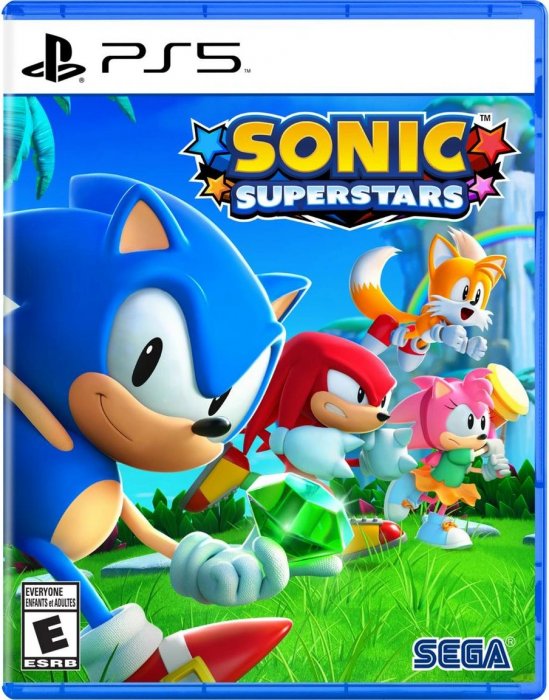
Pros
- Nostalgic gameplay for dedicated fans
- Multiple character selection
- Attractive, vibrant visuals
Cons
- Evolution sidestepped in favor of familiarity
- Gimmicky, unwieldy, overly-long stages
- Poorly conceived boss battles
- Sub-par multiplayer action
While nobody would deny his mantle as one of the most iconic video game characters in history, it’s equally fair to state that Sega’s Sonic the Hedgehog has had a bumpy journey on his path from decade to decade, generation to generation. Following the utterly phenomenal success of Sega Mega Drive releases Sonic the Hedgehog (1991) and Sonic the Hedgehog 2 (1992) Sonic has struggled in his efforts to find successful reinvention beyond the 16-bit era. For the past 30 years, Sega has produced a steady series of mediocre-to-bad releases - a series occasionally punctuated by good, but very rarely outstanding titles.
Unlike his long-time rival and sometime friend Mario, Sonic has had a troubling time evolving in a way that demonstrates consistent measures of success. While Nintendo’s mascot has time and again made the shift through varying platforms, genres, and perspectives - typically hitting review highs with each and every generation - Sega’s Blue Blur frequently stumbles, with middling reviews and a shrugging resume packed with experiments such as “what if… a werehog? what if… episodic? what if… he had a sword?”
Unfortunately, while Sonic and Mario can both lay claim to an almighty 200+ video game appearances, there is a clear disparity in the artistic, critical, and financial success of the two gaming icons.
Regardless, Sonic the Hedgehog and his colorful universe retain legions of dedicated and passionate fans, always ready and willing to spin their way through another adventure with their favorite hero while hoping to recapture the same joy derived from those Mega Drive classics. And thus, every now and again, Sega will abandon reinvention and instead return directly to the 2D platforming gameplay of yesterday; considered a safe bet when it comes to delivering a quick fix of pleasing, old-school action for the long-suffering, but fiercely loyal fanbase.
And so, with Sonic Superstars, we are once again eschewing evolution for the safety net of familiarity.
The gang’s all here for Sonic Team’s newest adventure
Like many of the 2D entries before it, Sonic Superstars comes right out of the gate with hefty efforts to remind the player what it is that plucked their heartstrings in the first place. We have the typically branded title screen, a gang of popular protagonists, (including Knuckles, Tails, Amy Rose, and, of course, Sonic himself), and the immediately familiar sounds of Jun Senoue. Following a short but fun animated sequence, Sonic and Co. are immediately thrust into Act 1 of the first area, Bridge Island Zone.
First impressions are highly promising, as* Sonic Superstars* boasts lush, colorful visuals and bright, cheerful worlds - with the Sonic Team synergizing the unmistakable style of the older games with modern 2.5D visuals. Additionally, the audio effects are suitably nostalgic, utilizing the iconic 16-bit samples for jumping, ring collecting, enemy bopping, super-spinning, and more. It’s an aesthetic that boldly proclaims that you are, indeed, playing a Sonic the Hedgehog title - live and in living color. These elements are indeed both wondrous and exciting. But as the player pushes deeper into the first zone and beyond, this initial sense of promise rapidly starts to dissipate.
Many of the Sonic series’ detractors cite a key issue with the franchise: its core hypocrisy. That a franchise based entirely upon speed and adrenaline, starring The Fastest Mammal Alive is also a platformer, packed with constant pitfalls, death drops, solid stops, horizontal spikes, and unseen enemies that can rarely be anticipated or countered because of the character’s thirst for speed. And while this argument can be leveled at many Sonic titles, in* Sonic Superstars*, we may have the biggest offender yet.
The classic loop-de-loop gets a supercharged update
Sonic Superstars seems custom-designed to fight the player’s attempts to find momentum at every conceivable opportunity. The stages, bigger than they have ever been ever before, not only suffer a discoordinating lack of direction, but also seem designed to punish Sonic for moving at any pace beyond a gentle gait. Though there are plenty of exciting and dizzying setpieces - including multi-loops, speed pipes, corkscrews, superchargers, and water slides - the stages are so completely piecemeal, so disjointed and unpredictable, that almost any efforts to gain momentum are stopped dead by an unseen enemy, a wall of spikes, or (the worst offender in all Sonic games) an obstacle that sends you rocketing back in the direction you came.
This central issue remains at large for the duration of the adventure, and as such makes the journey through each and every zone feel like a laborious task to endure, rather than a challenge to be surmounted. As Sonic and his friends reach each progressive area, many of which are attractively designed and aesthetically inviting, any sense of joy and wonder is soon snuffed out by a design that does its damnedest to prevent smooth passage at every turn.
A stage set in darkness is one example of Sonic Superstars’ muddled design concepts
Sonic Superstars suffers severely muddled design, packing out its stages with all manner of gimmicks but rarely in a fashion that offers coherence. An early zone based around pinball is a cool idea, but then its mechanics are suddenly replicated several stages later in a manner that doesn’t gel with the new zone’s aesthetic. At one point, our heroes pilot a subterranean drill for a few moments. At another, the action becomes shoot-‘em-up-like. Some zones have three acts, while some zones have one. Maybe there’s a boss, maybe not.
This is all reflective of Superstars’ jumbled nature, as if the initial draft was approved without any sense of fine-tuning. Because of this, Sonic Superstars is prevented from having its own distinct identity, coming across like a grab bag of ideas pulled from every previous Sonic release - with a few new ones tossed in for good measure, regardless of whether they’re fit for purpose or fun to engage with.
In a speed-focused platformer, why would you implement a stage that takes place in the dark? Why angle a spring so that a player has a 50/50 chance of landing on a set of unseen spikes? Why accelerate a character through a tunnel only to have an enemy bop them upon exiting? These aren’t challenges, they’re just bad ideas, and every one of them gets a look-in.
Similar issues come to the forefront in Sonic Superstars’ poorly-conceived boss battles: overly long sequences that consist of repetitive and frustrating phases. A promising 360-degree fight with a robot piggybank can be ended in mere seconds if you equip Amy Rose’s double jump, while one underwater encounter with Robotnik, packed out with sluggish mechanics, is an absolute slog. These encounters are among the weakest in the series’ history, often running five-plus minutes at a time and backed by a terrible theme that consists of the same two-bar loop repeated ad nauseam. Tiring.
Sonic Superstars suffers muddled design, packing out its stages with all manner of gimmicks but rarely in a fashion that offers coherence.
Multiplayer support is available in the form of a separate Battle Mode, playable both on and offline, as well as the option to play through the campaign with all four characters simultaneously. Some enjoyment can be derived from the former - a mode that also allows players to design their own character (do not steal) in a “Lego-style” workshop - but the co-op campaign is yet another example of “Do First, Think Later” design. In a series where the characters move as fast as Sonic and his chums, and where huge, open-plan stages are littered with springs, superchargers, and corkscrews, the ability to keep two-to-four players in close proximity is a stupendous task, rendering co-op a cumbersome experience.
For those looking for alternate modes, there isn’t a whole lot on offer for your $60. In addition to the main campaign and the aforementioned Battle Mode, Sonic Superstars also offers a Time Attack option for all you dedicated speedrunners. There are also all manner of components to be unlocked for the custom character designer, and the most dedicated of players may wish to play through the campaign again to fully explore the zones and/or gather up any remaining Chaos Emeralds. For the more casual player, however, one run through the (roughly) seven-hour campaign will likely suit all of your needs.
While a lot of complaints can be leveled at Superstars’ design, there are still some neat ideas showcased throughout. The choice of multiple characters, each with their own unique skills, is a great touch, giving all four fan favorites their own turn in the spotlight. It must also be reiterated that Superstars’ does look wonderful, featuring some dazzling special effects as well as vibrant and creative use of color and shape. Jun Senoue’s soundtrack is more of a mixed bag, debuting some great new tunes with others that are a little more by-the-numbers - clumsily looping and featuring an over-reliance on, let’s just call it, “Sonic Drums”.
Still, this audio/visual experience effectively conjures up the ‘90s Saturday Morning sensation that is often a key part of the Sonic experience. Overall, it’s a pleasing and warming vibe, one that helps to decorate the more sub-standard elements of the title. Occasionally, all of these elements come together quite nicely for a good time. But it just never lasts long enough, as Superstars frustratingly undermines its own sense of enjoyment.
Bonus stages task our heroes with gathering the fabled Chaos Emeralds
In 2017, developer Christian Whitehead released Sonic Mania - a 2D Sonic the Hedgehog title that received massive acclaim not only from the Sonic fanbase, but also from the wider gaming community. Whitehead showed that the classic Sonic formula - one that many had declared antiquated - was still viable. With careful consideration paid to stage design, pacing, and flow, Whitehead demonstrated that a Sonic game could be produced that hit all of the nostalgia buttons while also offering a satisfying challenge attuned to modern audiences. As a result, Sonic Mania received incredible plaudits, considered today one of - and maybe the best - Sonic the Hedgehog title of all time.
It’s six years later, and by contrast, Sonic Superstars feels almost algorithmic in its creation. Every expectation for a Sonic adventure is here, sure, but plastered in sporadic and unpredictable fashion akin to that of a scrapbook. Superstars understands what the fanbase loves about Sonic the Hedgehog - dizzying stunts, fun characters, engaging worlds, vibrant visuals, fast action - but struggles to fuse these elements together in a way that makes for graceful gameplay. Fans will find measures of enjoyment in Superstars but may need to ask themselves whether this enjoyment is based on recognition and familiarity, rather than actual immersion.
Ultimately, Sonic Superstars is not a bad title. It’s fine. Serviceable. But, some 30 years on from the series debut, is “fine” really enough?
Ultimately, Sonic Superstars is not a bad title. It’s fine. Serviceable. But, some 30 years on from the series debut, is “fine” really enough? While other gaming icons - Tomb Raider, Final Fantasy, and of course, Super Mario Bros. - repeatedly succeed in reinvention and/or evolution, Sonic the Hedgehog seems stuck in a cycle of flawed genre experiments or “Hey, remember 1991?” throwbacks. And even when it has been demonstrated how to make it work, a la the aforementioned Sonic Mania, Sonic Team still struggle to perfect the formula for crafting a top-tier experience.
Perhaps it’s time for somebody else to take a turn at handling The Blue Blur. Sonic the Hedgehog is a valuable, beloved, and enduring franchise, legitimately indelible in the annals of gaming history, but the lack of consistent quality doesn’t reflect this, and some serious evolution is needed.
Sonic Superstars has all of the ingredients, but something has gone askew in the baking. This results in an adventure overburdened with gimmicks while lacking in coherence. While the nostalgic, colorful world and its fun cast of characters shine brightly, Sonic Superstars frequently proves unwieldy and antagonistic, wrestling against its own design. There’s enjoyment to be found for the dedicated fanbase, but the wider community should look elsewhere.
This review is based on a retail build of the game provided by the publisher.
Pump the Brakes
Sonic Superstars has all of the ingredients, but something has gone askew in the baking, resulting in an adventure overburdened with gimmicks while lacking in coherence. While the colorful world, nostalgic presentation, and fun cast of characters shine, Sonic Superstars frequently proves unwieldy and antagonistic, wrestling against its own design while roadblocking fun. There’s enjoyment here for the dedicated fanbase, but the wider community should look elsewhere.
Gameplay:
Sound:
Graphics:
Value Rating:

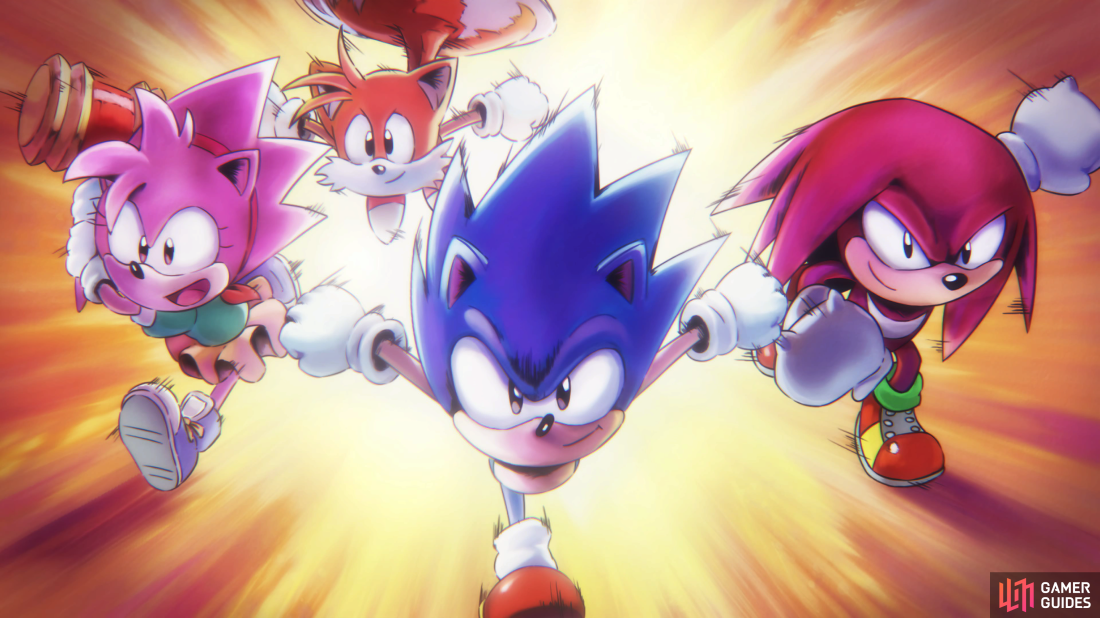
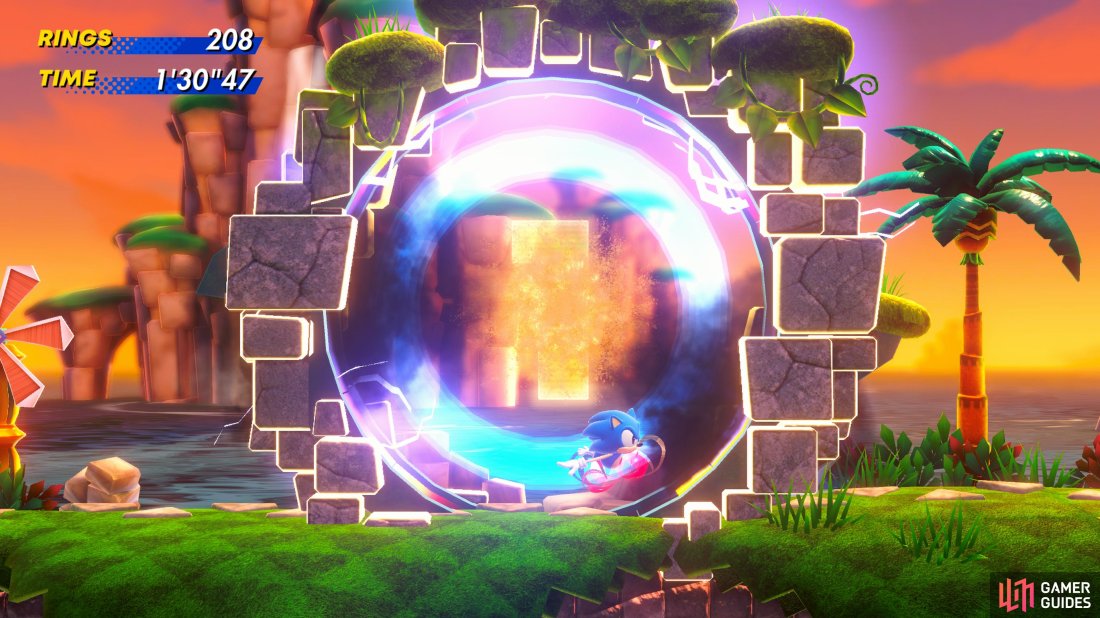
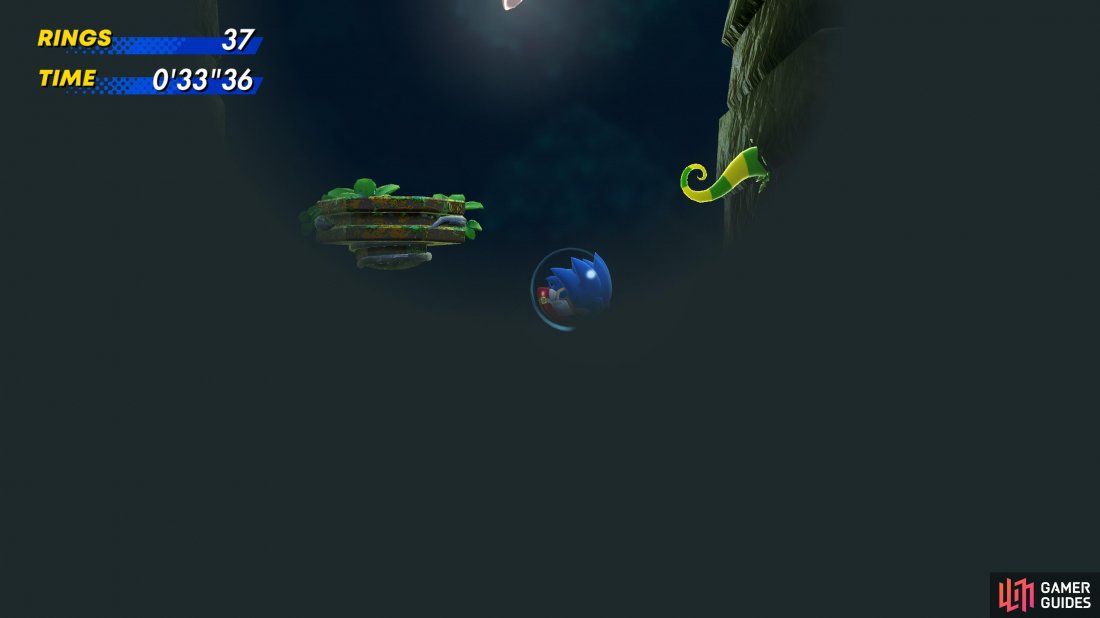
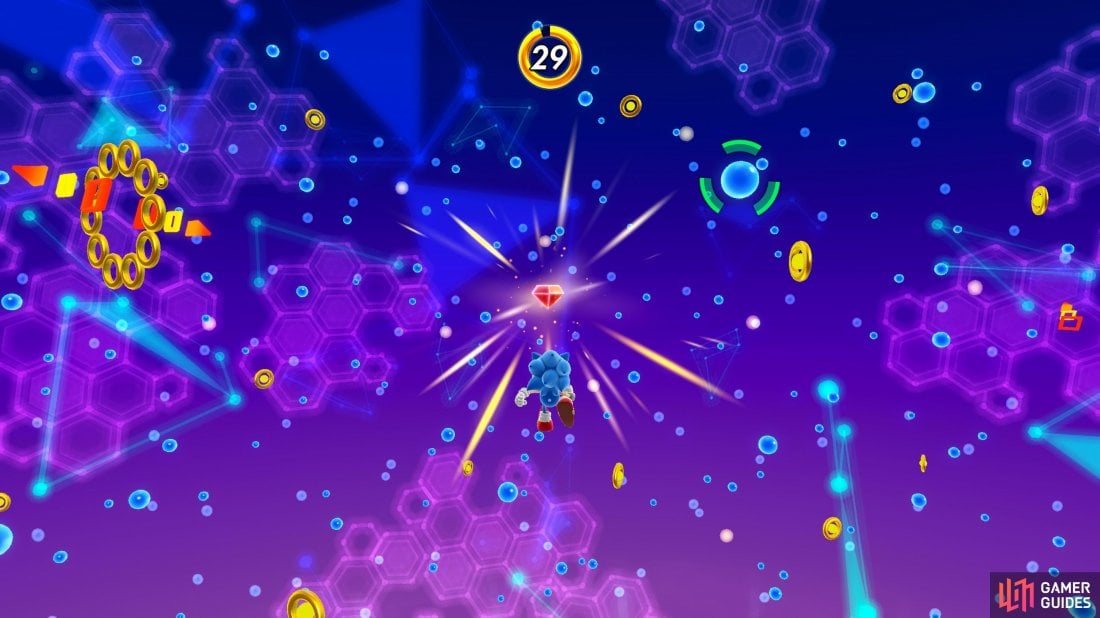
 Sign up
Sign up
No Comments